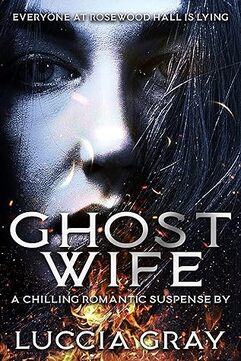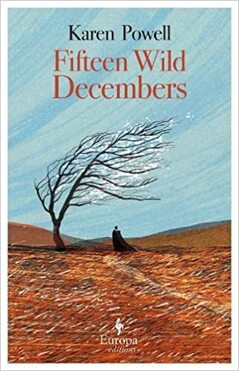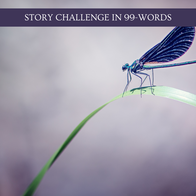Ghost Wife by Luccia Gray
But her sleep is disturbed by noises from the attic and, even though her door is locked, someone has left strange messages in her room. The housekeeper and other staff dismiss the sounds as wild animals, ancient architecture or her overactive imagination, although the village gossip tells of disappearances and ghosts. Already mentally fragile, Lyra fears she’s going out of her mind.
When the owner, Carla’s father, arrives from London, her confusion deepens. Marcus seems to fancy her, but can she trust him? Lyra has been let down too many times before.
I was reading a review of this novel on another blog, when I was struck by a flash of inspiration: I could write a contemporary version of Jane Eyre. I should have realised, knowing the author from the blogosphere, that Luccia Gray had beaten me to it, after writing a whole series of sequels to Charlotte Brontë’s classic.
I really appreciated the clever ways the author has honoured and subverted the original novel, both in the plotting and allusions to Charlotte Brontë’s text. I counted four reworkings of famous quotes and there may have been more. I liked that Lyra was kinder to her pupil than Jane Eyre was and how, as in Wide Sargasso Sea, the ‘madwoman in the attic’ is given a voice.
Jane Eyre has several contentious issues for the modern reader, not least regarding attitudes to mental illness and female empowerment. Luccia Gray strikes a fine balance between fidelity to the original story and contemporary sensibilities, although I had some residual doubts about the wife’s treatment. But overall, it’s a fine accomplishment, ideal for readers of romantic suspense and fans of Jane Eyre.
I know from previous discussions that the author and I disagree about the location of the house that inspired Thornfield in Jane Eyre. So, she’s set her update in Yorkshire, while I lead book-loving walkers to a part of Derbyshire that fits the locations in the book. Follow this link and see for yourself:
IN THE FOOTSTEPS OF JANE EYRE
Fifteen Wild Decembers by Karen Powell
As the reader knows, but little Emily doesn’t, she will make a name for herself in an entirely different sphere. For this is the story of the Brontë sisters, the three who survive the deprivations of their childhood becoming authors still admired today.
What can a contemporary writer add to an already familiar story? Through vibrant prose and forensic character analysis, Karen Powell makes this tale seem fresh. Although we might anticipate the tragic ending, we can’t resist turning the page.
We live with the sisters – and their brother Branwell – in all their shyness, ambition and rivalries; their isolation, eccentricities, and love of their rectory home. Our narrator, Emily, is perhaps the most introverted of the siblings, and the most determined to be true to herself. Her attachment to the moors is beautifully depicted, as is her fear of the outside world.
I don’t often enjoy novels about writers, but this is a lovely compassionate story of young women who appear to be oddities on the surface, with brilliant minds bubbling underneath. Thanks to British publishers Europa editions for my review copy.
He stretched and grew and stretched some more, waving his tip at the sky. But when he’d almost reached his proudest, brightest, sharpest height, a rumbling monster sliced his top off.
“Get over it,” said the others. “You’ll grow back stronger. It’s not like you’ve been zapped with pesticides or yanked up by the roots.”
But, with every cut he felt weaker, paler. Now he dreaded growing tall. He dreamt of fields where each grass was named – meadow foxtail, fescue, Yorkshire fog – and interweaved with buttercup and clover. A wilderness where nature ruled and he could spill his seed.
MEADOWS FOR BUTTERFLIES
You'll also find a link to an earlier post with even more photos.
























 RSS Feed
RSS Feed





















